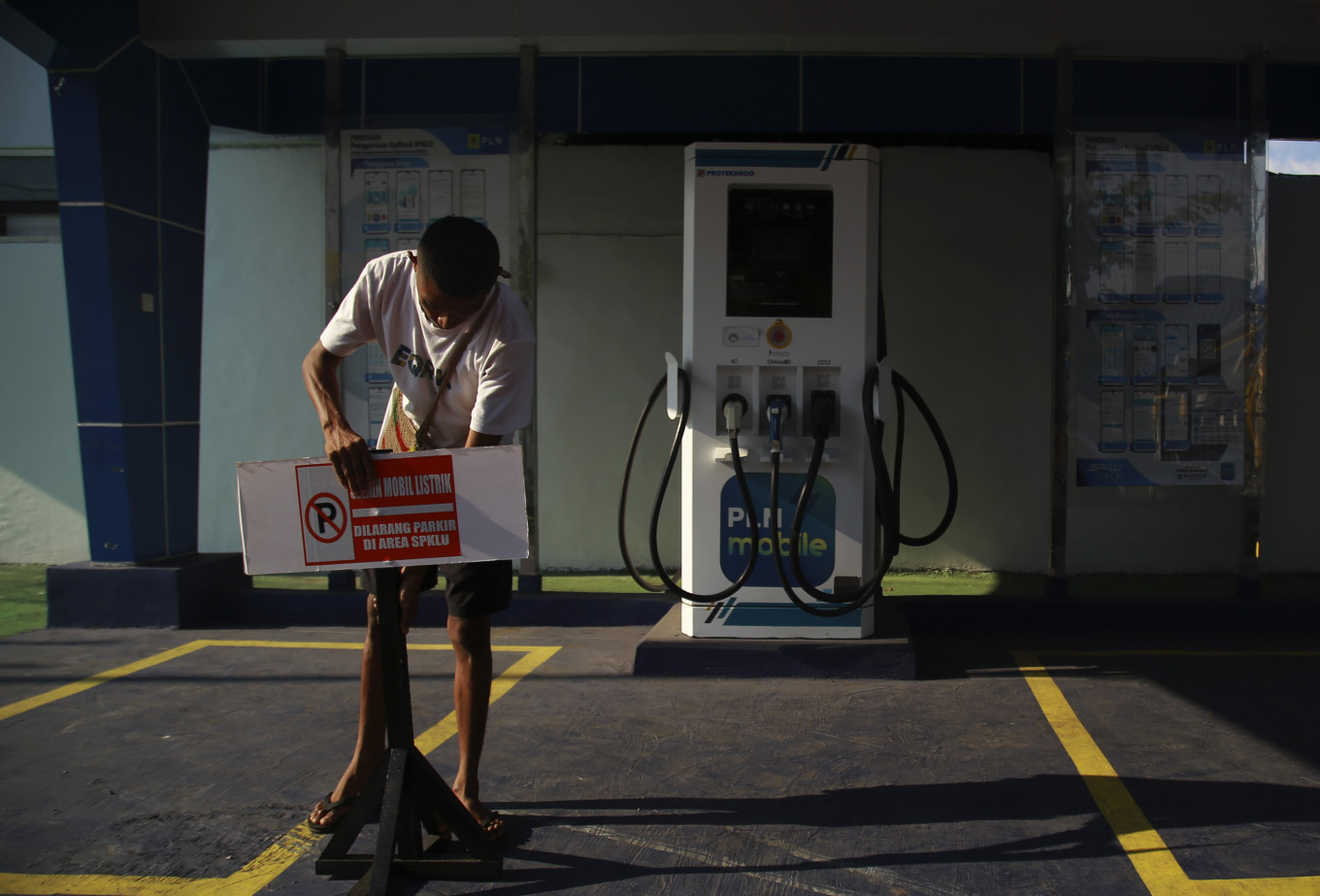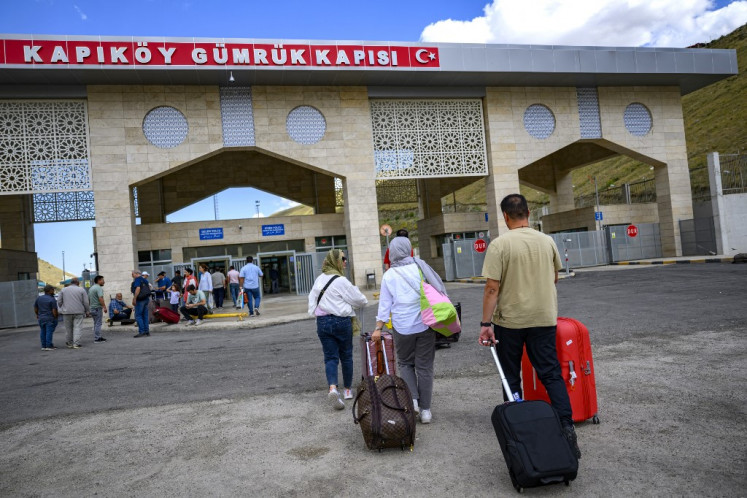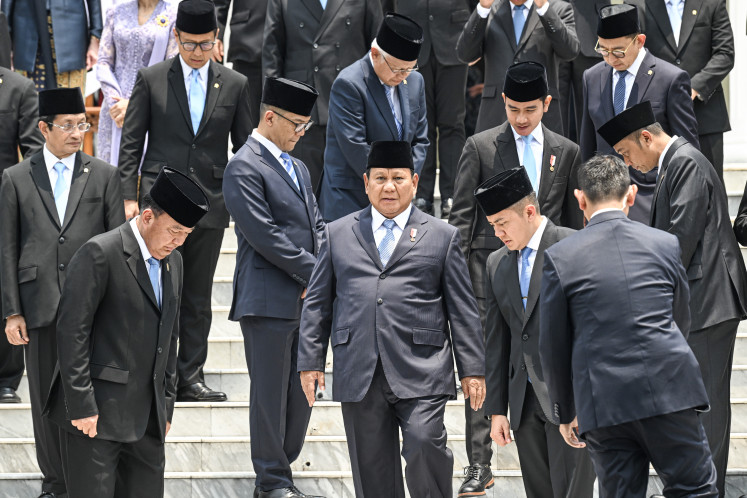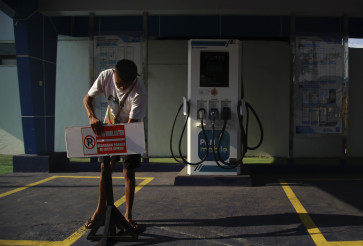Popular Reads
Top Results
Can't find what you're looking for?
View all search resultsPopular Reads
Top Results
Can't find what you're looking for?
View all search resultsJETP: A top-down approach cannot deliver a just transition
While the JETP offers great commitments, they are difficult to reconcile with the noticeable shortcomings in ensuring transparency, accountability and inclusion. Indonesia’s energy transition is not just a set of projects or programs to be negotiated between the central government and donor countries.
Change text size
Gift Premium Articles
to Anyone
 A person adjusts a sign on April 26, 2024, at an electric
vehicle charging station in Ternate, North Maluku. State-owned
electricity company PLN plans to build another five such
facilities in North Maluku and Maluku to support the
government’s efforts to develop an electric vehicle ecosystem. (Antara/Andri Saputra)
A person adjusts a sign on April 26, 2024, at an electric
vehicle charging station in Ternate, North Maluku. State-owned
electricity company PLN plans to build another five such
facilities in North Maluku and Maluku to support the
government’s efforts to develop an electric vehicle ecosystem. (Antara/Andri Saputra)
A
nnounced two years ago, in November 2022, on the sidelines of the Group of 20 summit in Bali, Indonesia’s US$20 billion Just Energy Transition Partnership (JETP) with partner countries led by the United States and Japan was greeted with enthusiasm by many.
The largest energy transition financing package in the world so far, Indonesia’s JETP was only the second such partnership to be developed with coal-dependent developing countries to accelerate the transition to clean energy and phase out of coal power.
From the outset, it was clear that the partnership would have to move fast to meet its ambitious aims of peaking power sector emissions by 2030, increasing renewable energy to 34 percent of all power generation by the same year and accelerating the retirement of coal powered plants. To achieve this, the JETP promised to mobilize $20 billion, including $10 billion from partner governments for priority projects, which would in turn leverage $10 billion in private sector financing.
Speed was indeed of the essence, as the promised funding accounts for only one fifth of the investment that the JETP secretariat has estimated will be needed to achieve the 2030 goal, while an additional $77 billion or more remains to be “catalyzed” by JETP investments (CIPP, 2023).
Yet two years on, there has been little progress. Only one set of direct investments from partner governments worth $30 million has so far been announced (JETP, 2024). And while the JETP claims that over $200 million has been committed in grants and technical assistance, almost $80 million of this comes from pre-existing programs.
The JETP also faces tough questions about the terms of financing, as some partner governments are offering terms not much better than those of commercial banks. The slow speed and poor terms of JETP financing have been questioned by Coordinating Maritime Affairs and Investment Minister Luhut B. Pandjaitan, prompting him to ask, “Where is the money?”
That is a hard question to answer, at least for outsiders to the partnership, which include civil society organizations, businesses, local governments and communities. From the start, the JETP has operated behind closed doors with very limited space for the public to participate. Public consultations have come and gone with no indication as to how they might influence planning.


















